Methylcobalamin vs Cyanocobalamin | Vitamin B12 Difference
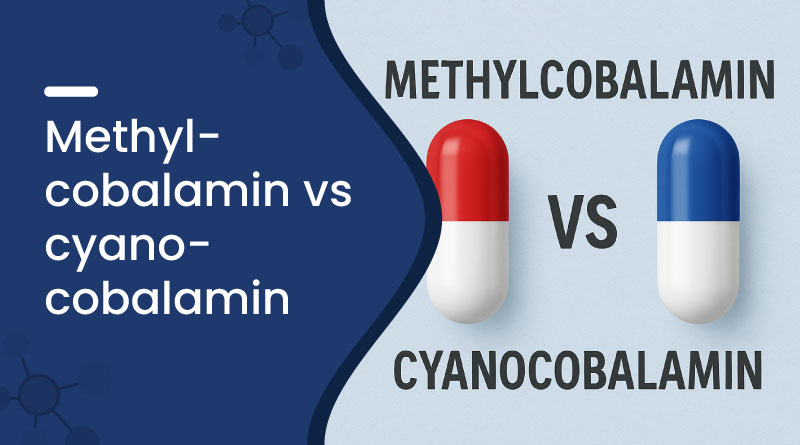

Introduction: How Does Methylcobalamin Differ from Cyanocobalamin?
Methylcobalamin and cyanocobalamin are two common forms of vitamin B12, essential for nerve health, red blood cell formation, and DNA synthesis. Methylcobalamin is the bioactive form naturally found in the body, while cyanocobalamin is a synthetic form commonly used in supplements. The key difference lies in their chemical composition and how they are processed in the body. These distinctions influence their absorption, retention, and therapeutic effectiveness.
Organic vs. Man-Made
Methylcobalamin is a naturally occurring form of vitamin B12, present in animal-based foods and utilized directly by the body. It contains a methyl group, making it bioavailable without the need for conversion. In contrast, cyanocobalamin is a man-made form used in most fortified foods and low-cost supplements. It contains a cyanide molecule, which the body must remove before the vitamin becomes active. This structural difference affects their overall efficiency and safety.
Differences in How the Body Absorbs and Retains Them
Methylcobalamin is more readily absorbed and retained in tissues, particularly in the brain and nervous system. Cyanocobalamin, although efficiently absorbed, is less well retained and must first convert into active forms, which may reduce its effectiveness, especially in individuals with metabolic issues.
Methylcobalamin and Cyanocobalamin May Transform into Other B12 Forms
Once inside the body, both methylcobalamin and cyanocobalamin can be converted into other active B12 forms, such as adenosylcobalamin, which is crucial for cellular energy production. However, methylcobalamin requires fewer steps for conversion, offering more direct support to essential biological processes.
Both methylcobalamin and cyanocobalamin have different structures and functions, but the same health benefits.
How do these vitamins work?
Methylcobalamin helps your body make red blood cells, nerves, and DNA. It is an active form of vitamin B12 that your body can use right away, mainly supporting nerve health and preventing tiredness or weakness caused by B12 deficiency.
Cyanocobalamin is a synthetic form of vitamin B12 that your body converts into active forms like methylcobalamin. It helps produce red blood cells, supports nerve function, and prevents B12 deficiency symptoms such as fatigue, weakness, and numbness in the hands or feet.
Health Benefits of Methylcobalamin and Cyanocobalamin
- Nerve Health Support - This nutrient helps regenerate and protect nerve cells by promoting the formation of protective coverings. It improves signal transmission and may reduce tingling, numbness, or pain often linked to nerve damage or conditions affecting nerve function.
- Brain and Cognitive Function - It supports brain health by stimulating brain chemical activity that transmits signals and improves brain function. This may enhance memory, focus, and mood while offering protection against age-related cognitive issues and mental decline.
- Energy Production and Fatigue Reduction - It plays a key role in turning food into energy, supporting red blood cells and metabolism. This helps reduce tiredness and boost energy, especially in people with low levels or ongoing fatigue.
- Cardiovascular Health - It helps lower certain blood compounds linked to heart disease, supporting blood vessel function and overall heart health. This nutrient also contributes to essential chemical processes and antioxidant activity in the body.
- Eye Health and Vision Protection - It may slow or prevent vision problems by protecting the eye nerves and improving blood flow to the retina. This support helps maintain clear, healthy sight and overall eye function.
- Red Blood Cell Formation and Anemia Prevention - This nutrient helps produce healthy red blood cells. A lack of it can lead to anemia, causing fatigue, pale skin, and breathlessness. Supplementation helps restore normal levels and improve energy, strength, and overall well-being.
- Cell Growth and Tissue Repair - It supports the growth and repair of body cells and tissues. This is especially important during times of healing, development, or stress. Maintaining proper levels helps keep skin, muscles, and internal organs healthy and functioning properly.
- Mood and Mental Health Support - It helps create brain chemicals that regulate emotions, focus, and motivation. A deficiency can lead to feelings of sadness, anxiety, or confusion. Supplementing may improve mental clarity and emotional balance over time.
- Sleep Regulation - It helps regulate sleep patterns by supporting natural body rhythms. It assists in the production of sleep-related hormones, improving rest at night and alertness during the day. This can be helpful for those with disrupted sleep.
- Immune System Support - It helps the body make white blood cells, which fight off germs and infections. A shortage can weaken defenses, making illness more likely. Keeping levels balanced supports a stronger, more responsive immune system.
- Body Detoxification - It plays a role in removing harmful substances from the body. It supports liver function and helps eliminate toxins, pollutants, and metals. This process aids overall health and helps the body function more efficiently.
Common Vitamin B12 Supplements in India
| Medicine Name | Benefits |
|---|---|
| My 12 500 Tablet | Provides Vitamin B12, essential for blood cell formation, cell growth, and nerve health. |
| My 12 OD Tablet | Boosts health, reduces fatigue, improves focus, and supports healthy skin, hair, nails, and energy. |
| My12 OD Injection | Treats B12 deficiency, boosts red blood cells, enhances growth, and relieves fatigue, anemia, and tingling. |
Who Faces a Higher Risk of B12 Deficiency?
- Older adults
- Vegetarians and vegans
- Individuals with gastrointestinal disorders (e.g., Crohn’s, celiac)
- People who have undergone weight loss surgery
- Long-term users of acid-reducing medications
- Individuals with pernicious anemia
Which Is More Effective: Methylcobalamin or Cyanocobalamin?
Methylcobalamin, a naturally occurring form of vitamin B12, is often considered more bioavailable and better retained in the body compared to cyanocobalamin, a synthetic form. However, both are effective in treating deficiency. Methylcobalamin may be preferred for those with neurological issues or methylation disorders.
Recommended Intake
The recommended daily intake for adults is about 2.4 micrograms. Pregnant and breastfeeding women may require slightly more to support fetal and infant development.
Conclusion
Vitamin B12 is vital for nerve health and energy metabolism. Those at risk of deficiency should consider testing and appropriate supplementation. Choosing the right form and dose ensures optimal health benefits. Always consult a healthcare provider before starting a supplement regimen.
Frequently Asked Questions (FAQs)
Q: What is the main difference between methylcobalamin and cyanocobalamin?
A: Methylcobalamin is the active, natural form of vitamin B12, while cyanocobalamin is a synthetic form that must be converted into active forms in the body.
Q: Which is more bioavailable: methylcobalamin or cyanocobalamin?
A: Methylcobalamin is generally considered more bioavailable, as it does not require conversion and is ready for use by the body.
Q: Is one form safer than the other?
A: Both forms are generally safe, but methylcobalamin may be preferred by individuals with impaired detoxification pathways.
Q: Why is cyanocobalamin more commonly used in supplements?
A: Cyanocobalamin is more stable and less expensive to manufacture, making it the most common form in fortified foods and multivitamins.
Q: Who should consider taking methylcobalamin instead of cyanocobalamin?
A: People with B12 absorption issues, certain neurological conditions, or genetic variants affecting B12 metabolism may benefit more from methylcobalamin.
Q: Can both forms treat B12 deficiency effectively?
A: Yes, both forms can treat B12 deficiency, but methylcobalamin may have an advantage in supporting nerve health and energy metabolism.
Q: Are there any side effects from taking either form?
A: Side effects are rare, but high doses of either form can cause mild symptoms like dizziness or headaches in some individuals.
Q: Which form is better for vegans and vegetarians?
A: Both are suitable, but vegans may prefer methylcobalamin due to its natural origin and direct usability in the body.
Mecobalamin (500mcg)
10 Tablets in 1 strip
Alpha Lipoic Acid (100mg) + Methylcobalamin (1500mcg) + Vitamin B6 (3mg) + Folic Acid (1.5mg) + Benfotiamine (50mg) + Biotin (5mg) + Chromuim (200mcg)
10 Capsules In 1 Strip
Gabapentin (300mg) + Methylcobalamin (500mcg)
10 Tablets in 1 strip
L-Carnitine (500 mg) + Methylcobalamin (1500 mcg) + Folic Acid (1.5 mg)
15 Tablets in 1 strip
Methylcobalamin (1500 mcg) + L-Methylfolate Calcium (1 mg) + Pyridoxal 5-Phosphate (5 mg)
14 Tablets in 1 strip
Methylcobalamin (1500mcg) + Alpha Lipoic Acid (100mg) + Vitamin B6 (Pyridoxine) (3mg) + Folic Acid (1.5mg) + Vitamin D3 (1000IU)
15 Tablets in 1 strip
Recent Blogs
Disclaimer : Zeelab Pharmacy provides health information for knowledge only. Do not self-medicate. Always consult a qualified doctor before starting, stopping, or changing any medicine or treatment.


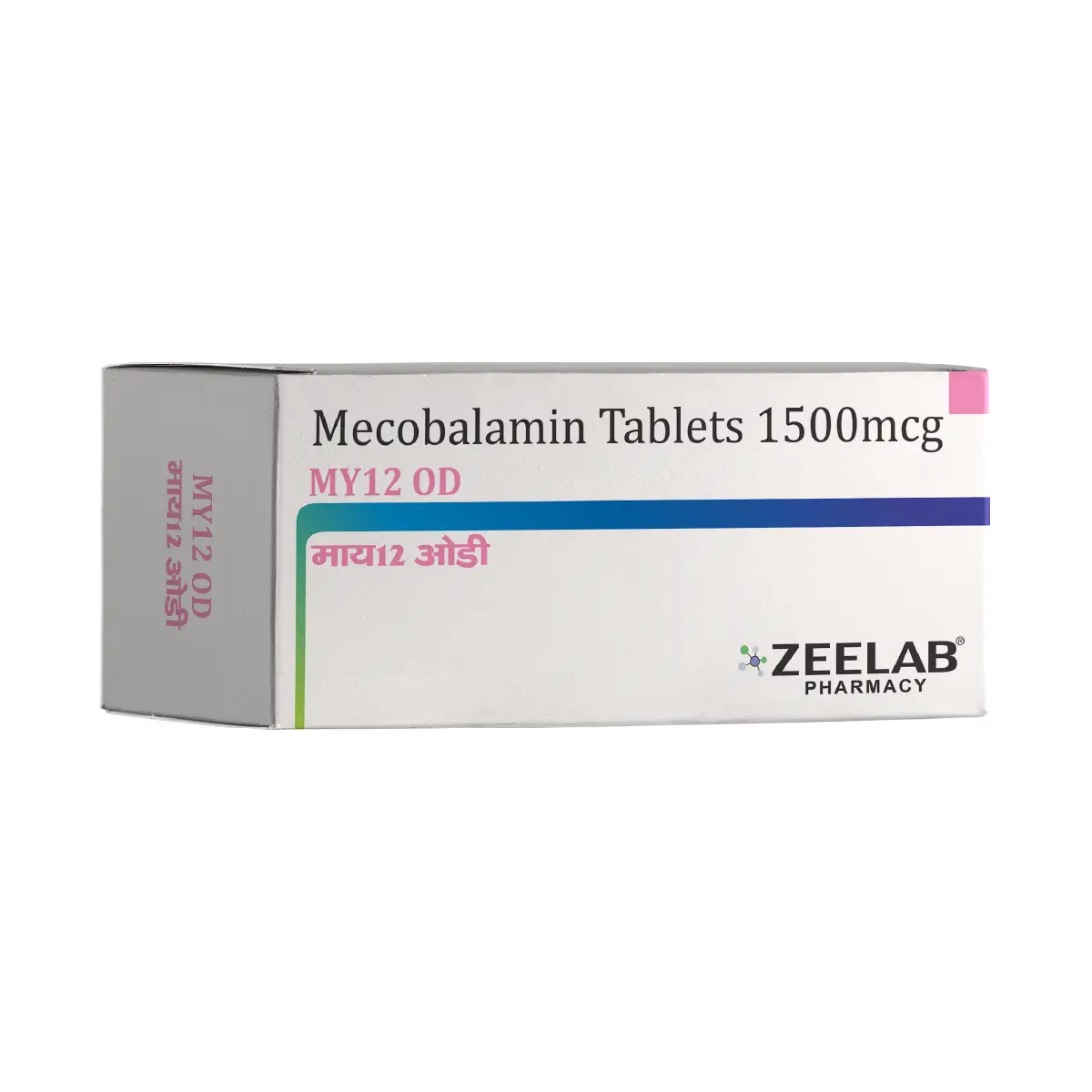
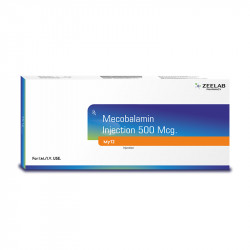
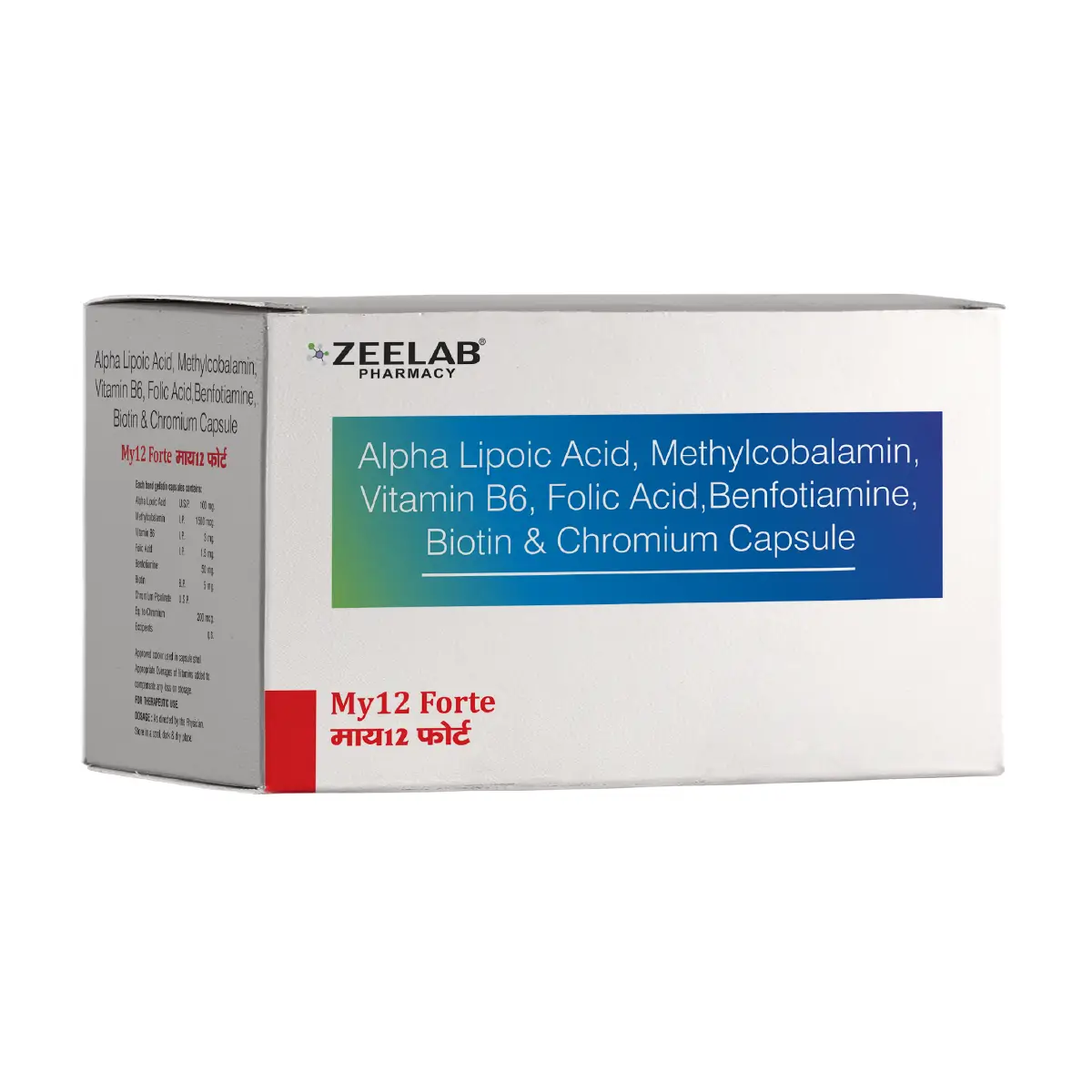
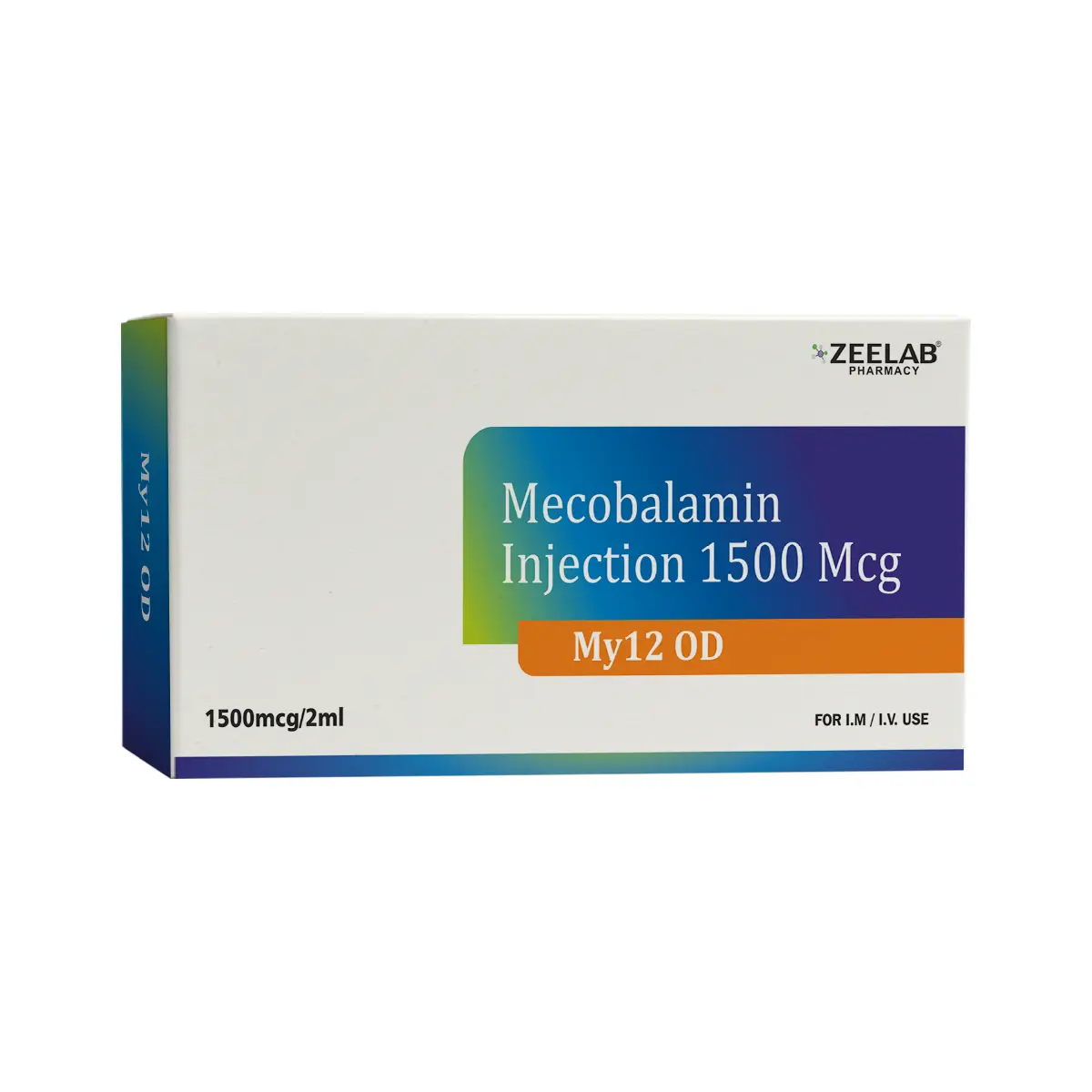
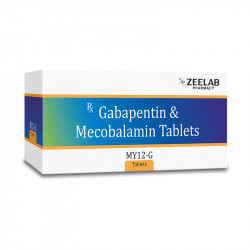
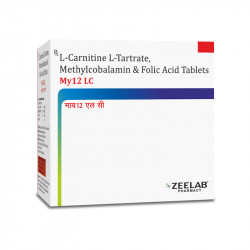
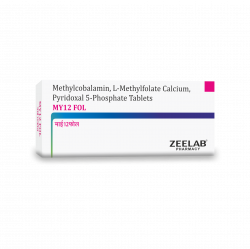
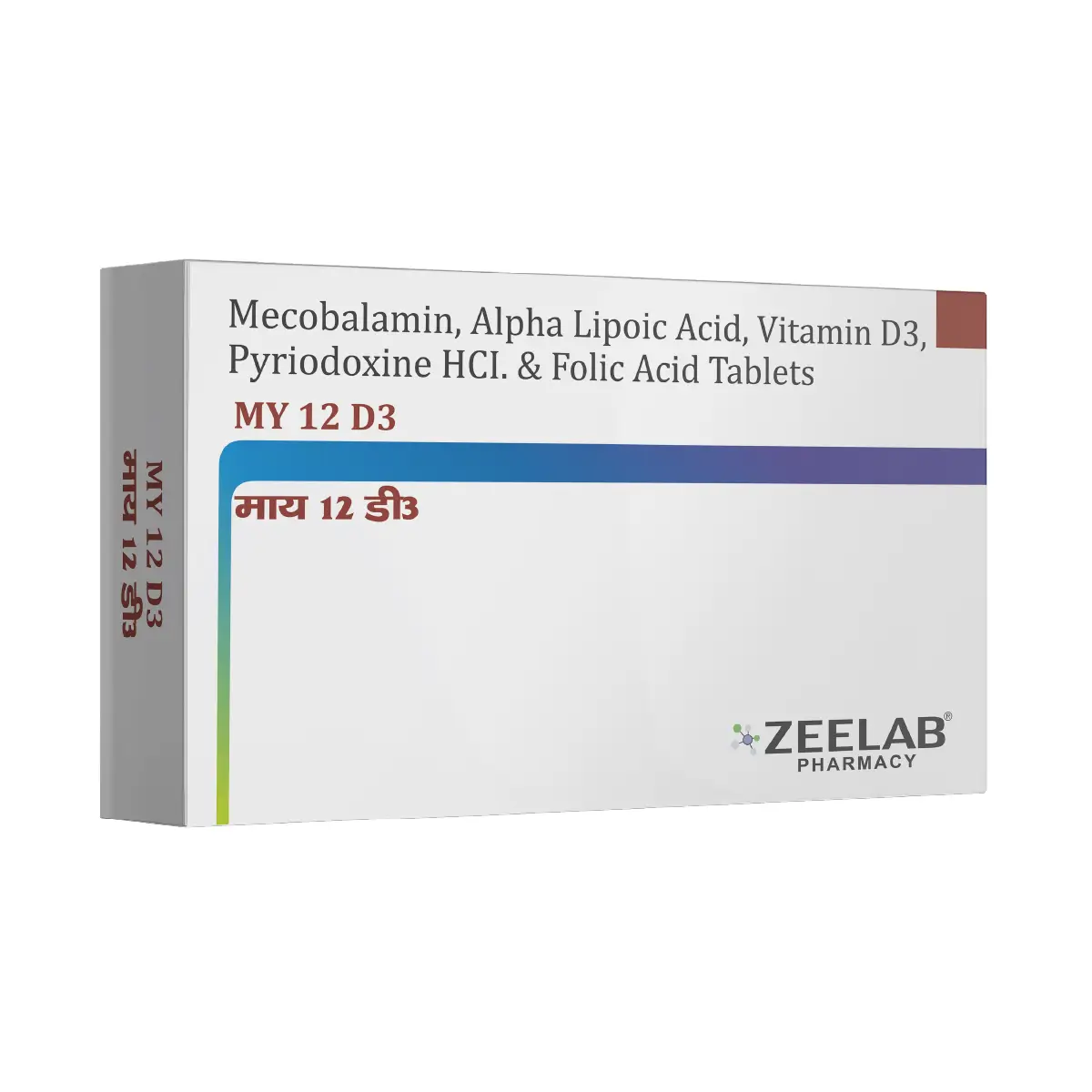















 Added!
Added!